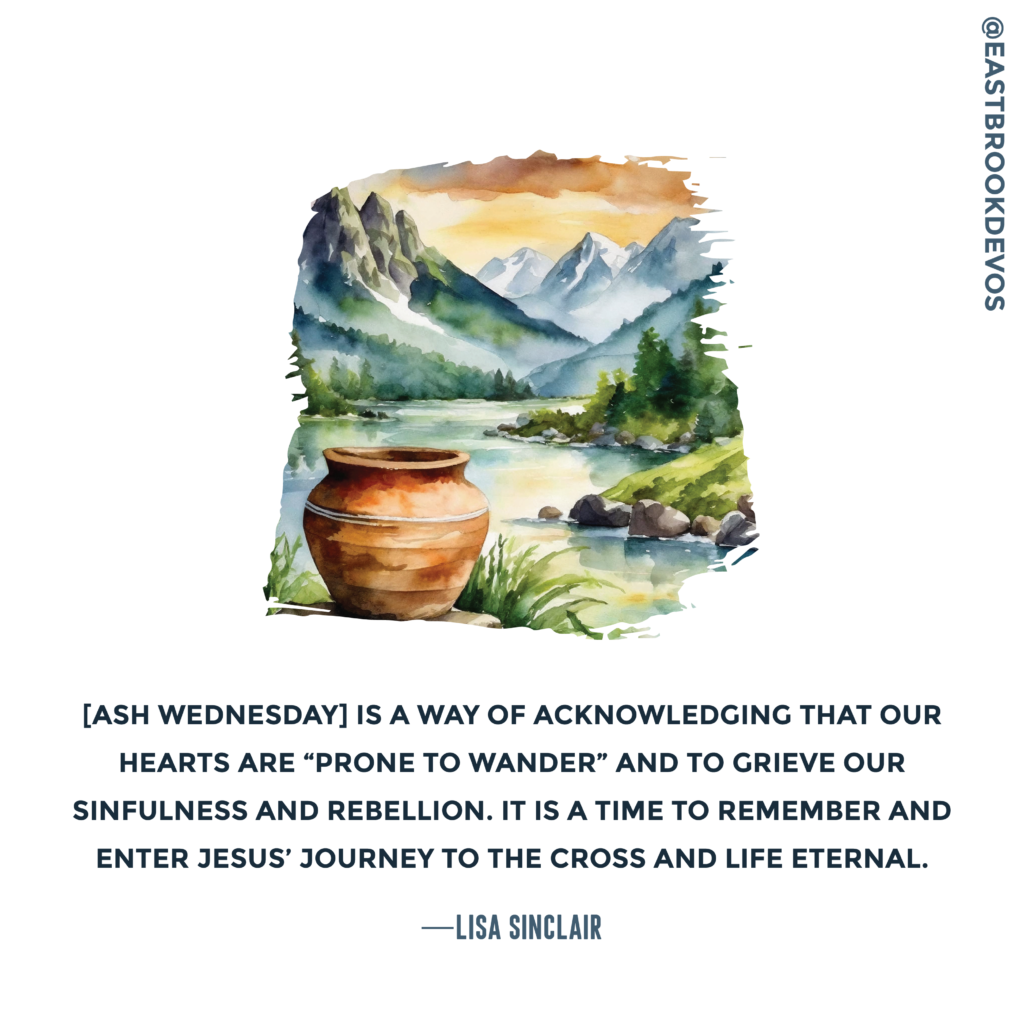I grew up in a home where Catholics were mistrusted. I can’t remember all the derogatory talk, but there was a feeling that Catholicism equaled “popery” and high church ritual equaled idolatry.
When I managed a Parish Nursing program, the chaplains would offer an Ash Wednesday service for all staff. After Easter the year before, they burned the palm fronds and guarded the ashes. Those ashes were “imposed” on our forehead when we walked up the aisle to the front of the chapel. “From ashes to ashes and dust to dust” was said as the dark sign of the Cross was made on our forehead. There was no music, preaching, or ornamentation, just a time of quiet reflection, prayer, and voluntary procession.
In Joel 2:12-13, the prophet speaks into a context of judgment. Locusts had destroyed the landscape, and foreign armies were attacking. Joel knew judgment was deserved from a just God because of idolatry, empty rituals, and lack of compassion. He called the people to gather and lament their sin—to fast, repent, and cry out to God. “’Even now,’ declares the LORD, ‘return to me with all your heart, with fasting and weeping and mourning.’ Rend your heart and not your garments. Return to the LORD your God, for he is gracious and compassionate, slow to anger and abounding in love, and he relents from sending calamity.”1
You will not find Ash Wednesday in Scripture. It became a practice of the Church in the 5th century to mark the beginning of Lent. It is a way of saying, “I am mortal. God created Adam from dust, and one day I will return to dust.” It is a way of acknowledging that our hearts are “prone to wander” and to grieve our sinfulness and rebellion. It is a time to remember and enter Jesus’ journey to the Cross and life eternal. As we observe Ash Wednesday, we join Christians all over the world, preparing our hearts for Easter’s celebration.
For reflection:
- In addition to Ash Wednesday, today is Valentine’s Day! Joel might say to us, “Don’t try to give God flowers or a red, heart-shaped box of chocolates! He wants your whole heart.” What does that mean to you?
- Are there any beliefs or rituals that make it hard for you to connect with this Lenten season? How can you overcome those and instead use this season as a time of deeper focus on God?
by Lisa Sinclair

Recommended Posts

A New Ordinary
March 30, 2024

Practice: Examen
March 29, 2024

A Good Friday
March 28, 2024


